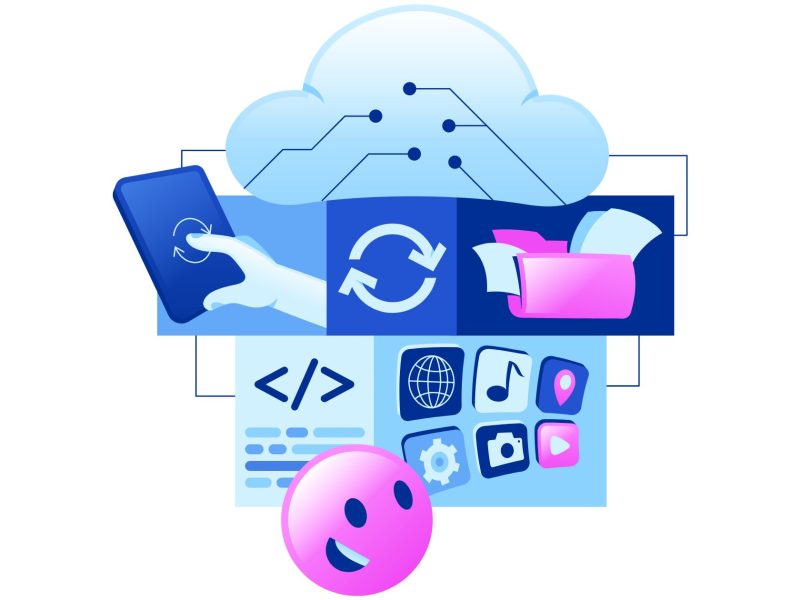Project management is the primary method for companies to optimize processes, ensuring higher levels of effectiveness and efficiency while managing many projects. Project managers employ cloud-based project management tools to achieve the best results possible. While incorporating this software can improve procedures, there are advantages and disadvantages to employing it.
When looking for project management software, you can refer to this article depending on your requirements. If you’re puzzled by the various options, consider the following pros and cons of cloud-based project management tools.
Pros of Cloud-Based Project Management Tools
There are several advantages to using cloud-based project management tools but here are the main ones you should know.
Improved Scheduling & Planning
Regardless of the approach used, project scheduling and planning are critical aspects of project management. The team’s previous record, which is required for current projects, can be simply retrieved using such management systems.
Furthermore, project managers might develop a consistent management plan to prioritize work in order to achieve results. Setting deadlines, identifying dependencies, defining deliverables, and allocating resources can all be done quickly and easily with cloud-based project management tools.
Streamlined Collaboration
Project teams are sometimes made up of members from different departments. They are expected to manage their everyday tasks, which makes it difficult for all stakeholders to attend meetings on a regular basis and stay informed. This type of communication breakdown can cause unneeded delays in your projects and problems, wasting your valuable resources.
One significant advantage of utilizing cloud-based project management software is that it encourages effective collaboration even in simple projects. It also keeps communication in a centralized location. Insights, such as status updates and project schedules, can be instantly accessible with a few clicks, and alarms can be sent immediately to relevant parties.
Effective Task Delegation
Often, project managers struggle to assign work to team members, which can have a negative impact on the team’s efficiency. Managers can use project management tools to distribute project responsibilities to team members and quickly determine who is available.
When it comes to task management, a cloud-based project management tool is also an easier solution for most team members. All they have to do is test the software and work on their tasks according to their priorities. To promote effective and smooth operations, many of these systems send out automatic reminders prior to deadlines.
Enhanced Productivity
Another advantage of a cloud-based project management tool is that it improves work productivity and optimizes decision-making. Because vital facts can be accessible in a single location, you may make sound choices in a short period of time.
Easier File Sharing and Access
Many companies rely on the secure sharing and access of vital documents. Professionals have used shared drives in the past, but cloud-based project management tools are a more practical solution. Depending on the platform, some provide cloud-based storage where users can make minor modifications, simply annotate, and leave feedback. These tools also retain changelogs to ensure project transparency within the team.
Effective Risk Management
Managers are responsible for implementing effective solutions and identifying possible challenges. Project managers can use cloud-based project management tools to strengthen their risk management strategies and seek assistance from the resources available to implement some effective fixes. It increases the overall efficiency of the team and allows project managers to deploy resources more effectively.
Budget Management
One of the benefits of cloud-based project management software is that it allows users to manage the resources at their disposal. Throughout the project’s duration, the chances of scope creep and the project’s tendency to deviate from the original plan are fairly high. Project management software can help managers avoid this by allowing them to keep track of everything in real time and keep project costs from rising.
Read Also
- The Advantages of Cloud Hosting for Businesses
- Simplify Workflows with Online Office Suites
- 8 Tech Tools That Help You Run Your Business
- Disaster Recovery in the Cloud
Cons of Cloud-Based Project Management Tools
To every advantage, there are always disadvantages around the corner. Cloud-based project management tools also have their own disadvantages as nothing is totally perfect. The main ones are cited here.
Internet Dependency and Downtime Risks
One of the significant concerns with cloud-based project management tools is their reliance on internet connectivity. If your internet connection goes down, it can disrupt your project management activities. Additionally, if the cloud service experiences downtime, you may temporarily lose access to your project data. Therefore, a stable internet connection is crucial for uninterrupted work.
Expensive Investment
High-quality cloud-based project management software is usually expensive. For some businesses, the cost of the software is a barrier to using it. Aside from the price, its upkeep and implementation are equally costly. Several items tend to be sold with numerous modules, which can raise the price.
Potential Data Privacy Concerns
While cloud service providers implement robust security measures, some businesses may still have concerns regarding data privacy. Storing sensitive project information on external servers may raise questions about unauthorized access or data breaches. It is essential to carefully evaluate the security practices and compliance certifications of the service provider before choosing a cloud-based project management tool.
Users Become Overly Dependent
Most people are quite reliant on the system until it is too late for them to figure out that there is a task that should be completed unless they receive reminders or alerts. Most entrepreneurs prefer conventional techniques over digital technologies because they inspire employees, particularly procrastinators, to complete tasks swiftly.
Complexity
While cloud-based project management tools are intended to help companies streamline and organize procedures, understanding the system may take some effort. A learning curve must be considered depending on the program’s complexity.
In some cases, project managers will need to learn how to use the software’s essential capabilities and ensure that all members understand how to use all components related to the activities they must complete. Keeping this in mind, it may take some time for everyone to grasp the software.
Potential Bandwidth Limitations
Cloud-based project management tools heavily rely on internet bandwidth for data transfer, especially when collaborating on large files or multimedia content. Limited bandwidth or slow internet connections may lead to delays in file sharing, affecting project timelines. Assess your internet capabilities and ensure they can support the demands of cloud-based collaboration.
Interface
If your company is new to using cloud-based project management tools, you will most likely migrate from traditional spreadsheets. At first, you may be frustrated by how difficult it is to navigate the software’s interface, believing that it simply takes some getting used to. Without something to compare it to, you may not notice that the reason you’re having trouble understanding how to use the software is due to a badly designed interface.
An overloaded and unappealing badly designed interface may cause annoyance. Rather than increasing productivity, your organization may have to revert to outdated practices. Fortunately, project management software with an easy-to-use interface is available. All you have to do is select one with a simple design that provides an excellent user experience.
Conclusion
Cloud-based project management tools offer numerous advantages, however, potential drawbacks must also be considered. You may make a knowledgeable choice on cloud-based project management tools by carefully evaluating your company’s needs and weighing its pros and cons.
Harness the power of these tools to enhance your project management capabilities, improve team collaboration, and drive successful project outcomes.


